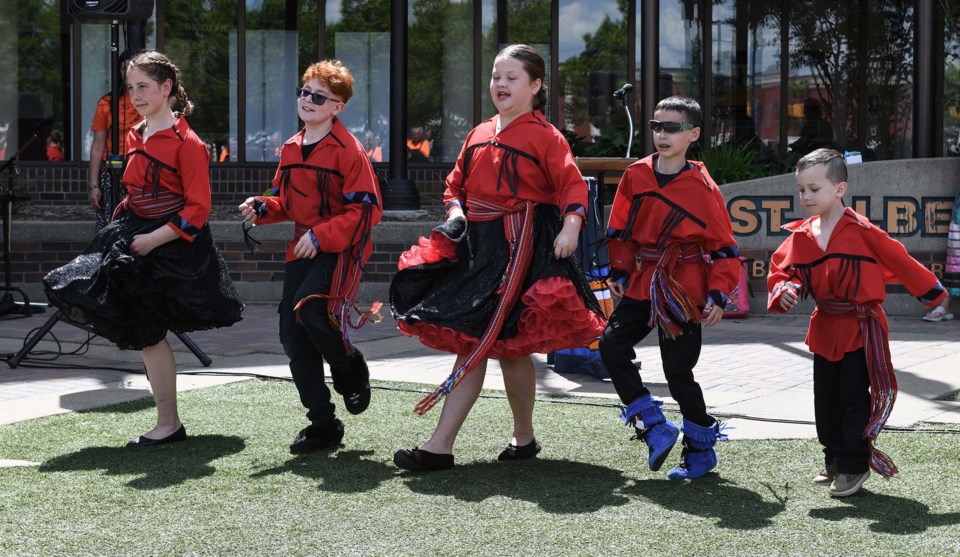Dancers, knowledge keepers, and other guests will be at Mission Park this Monday to honour the survivors and families of Canada’s residential school system.
Sept. 30 is the National Day for Truth and Reconciliation in Canada. The national holiday honours the children who never returned home from the residential schools, those that survived them, and their families and communities. The day corresponds with Orange Shirt Day, where Canadians wear orange shirts to raise awareness of the intergenerational impacts of the schools and promote the concept of “Every Child Matters.”
St. Albert’s official National Day event is from noon to 4 p.m. in Mission Park (15 Mission Ave.), city spokesperson Cory Sinclair said in an email. The event will include speeches, vendors, performances by First Nations, Métis, and Indigenous artists, and an Honour Walk to the city’s Healing Garden by the Sturgeon River. He encouraged everyone to take part in this chance to learn more about truth and reconciliation.
Guests can get ready for the National Day by creating an Orange Shirt Day beaded pin at the Musée Héritage Museum on Sept. 28, said spokesperson Shawna Randolph. The Musée will be open on Sept. 30 so guests can visit the Hear Our Voices exhibition, which features video testimonials from residential school survivors from the Michel Band.
Michif Cultural Connections has been selling Orange Shirt Day beaded pin kits all month in preparation for the National Day, said board vice-president Trina Grosse. The cultural centre is also inviting guests to the Michif this Sept. 29 for friendship soup and bannock.
The soup in question will be a traditional Métis stew called rubaboo, Grosse said. Traditionally made with whatever people had lying around, this rubaboo will be made with whatever ingredients guests bring to the event.
“We could end up with a really big pot!” she said.
Guests interested in the friendship soup event should visit www.facebook.com/michifcultural or call 780-994-1528 to reserve their spot.
Deep roots
Métis settlers were already living around Big Lake when Father Albert Lacombe and Bishop Alexandre Taché established St. Albert in 1861, historians note. Métis residents helped build St. Albert’s first bridge and chapel, and organized the first meetings of what is now the Métis Nation of Alberta here. Thelma Chalifoux, the first Métis woman to serve in Canada’s Senate, had an office here for many years.
St. Albert was also the home of Bishop Vital-Justin Grandin, who was a central figure in the creation of Canada’s residential school system. The Truth and Reconciliation Commission has described that system as a “policy of cultural genocide” that aimed to wipe out the culture of some 150,000 Indigenous students. Two residential schools operated in this community for many decades — the St. Albert Youville School on Mission Hill from 1873 to 1948 and the Edmonton Poundmaker school (now the site of Poundmaker’s Lodge Treatment Centres) from 1924 to 1968.
Survivors of the Youville and Poundmaker schools have described them as prison-like places of tears and brutal discipline, where they were forbidden to speak their traditional languages, fed disgusting food, and, in some cases, forced to dig graves for dead students.
Musée Héritage Museum curator Martin Bierens said it is important for everyone to learn these truths about the residential schools and build empathy for each other.
“Through that and through understanding each other, we can build a better community for all of us.”
Events like the National Day give people a chance to talk about our history and celebrate the resilience of Indigenous culture, Grosse said.
“It’s a little bit of an opportunity to celebrate that Indigenous people are still in Canada.”
Visit stalbert.ca/supports/truth-reconciliation for details on the National Day in St. Albert.




